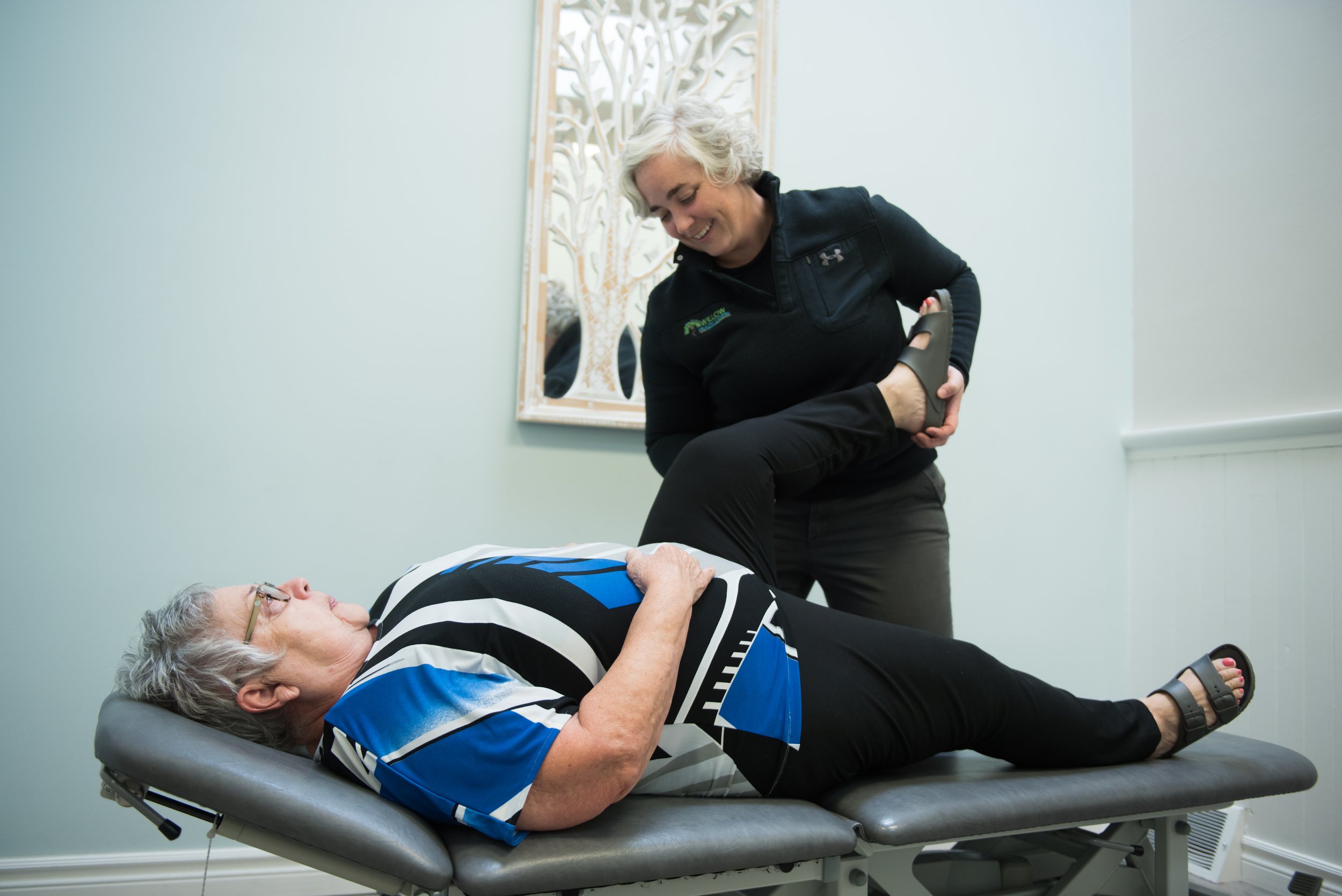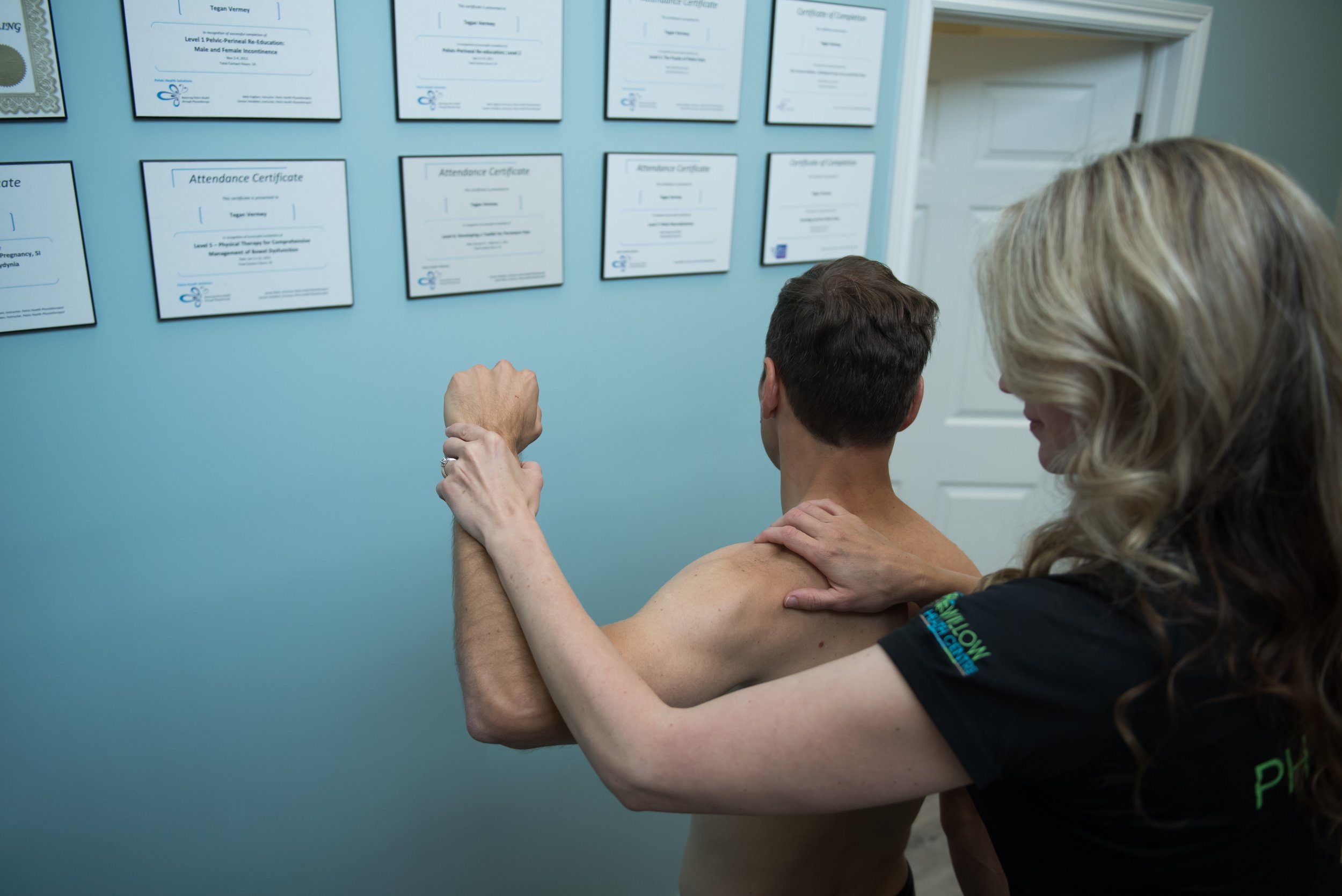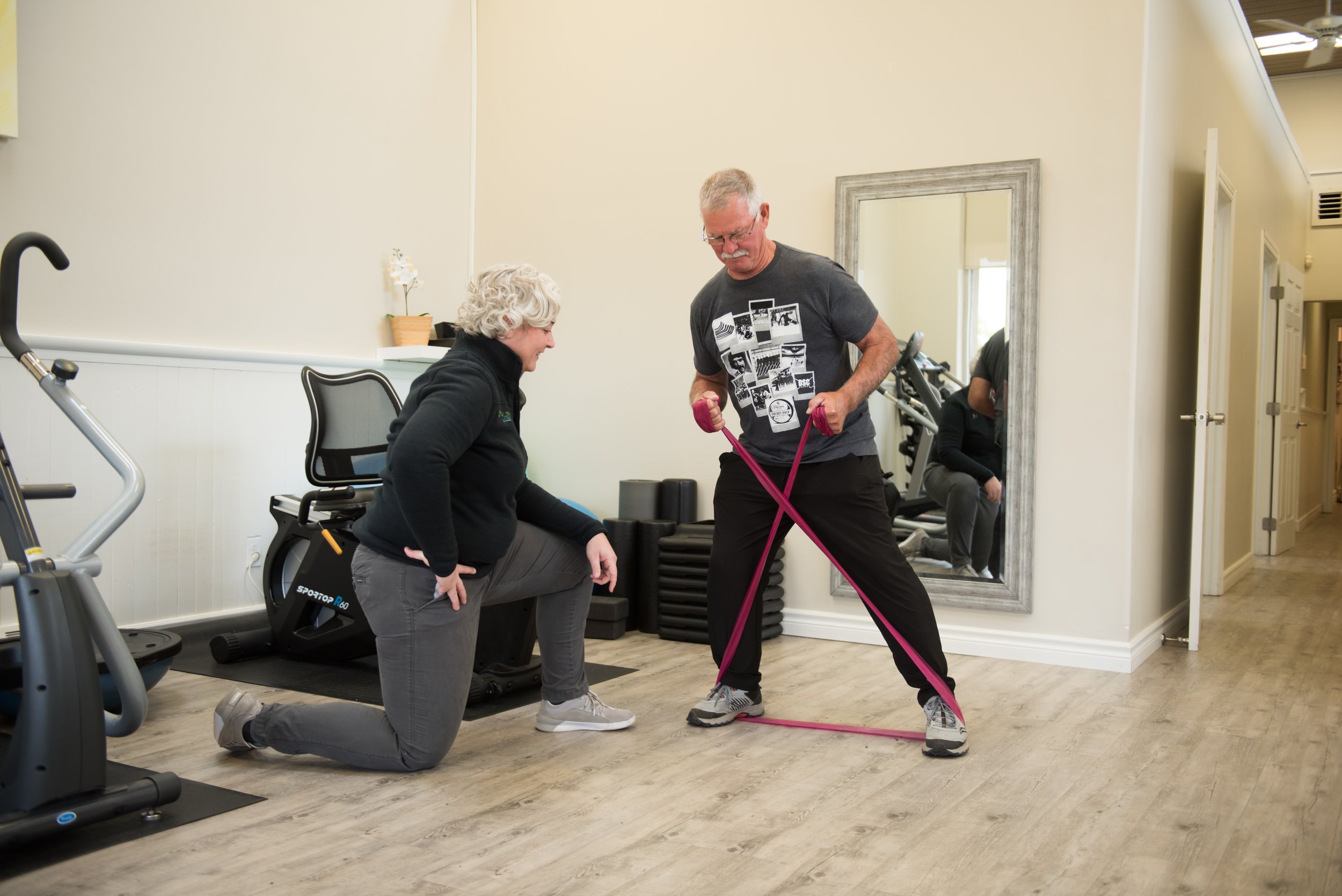
POST-PROSTATECTOMY REHABILITATION (Incontinence & Erectile Dysfunction)
Treatment is possible
Prostate cancer is the most common type of cancer in Canadian men. As a result of earlier detection and better treatments, prostate cancer has one of the highest 5-year survival rates of all cancers in Canada. As more men are experiencing life beyond prostate cancer, we still have a way to go in helping men as they live with the two common conditions of post-prostatectomy incontinence and erectile dysfunction after prostate cancer treatment.
Many men do not know there is a treatment for these conditions, beyond medication.
These conditions of significant quality-of-life implications. They are associated with decreased self-esteem and decreased involvement in life activities.
1 in 2 men experience leakage 3 months after their radical prostatectomy, and 1 in 5 men will still report leakage one year after surgery.
Over 80% of patients report their sexual function as poor or very poor after prostate cancer diagnosis and treatment. More than half of all men surveyed were not offered any intervention to help with this condition.
Both European and Canadian guidelines have firmly established the role of pelvic floor muscle training for first-line management of post-prostatectomy incontinence for over a decade. Pelvic floor exercises can help men recover continence more quickly, with significantly less leakage experienced after only weeks of training.
The role of Physiotherapy in helping men address erectile dysfunction after prostate cancer treatment is less well known, but the evidence and awareness for this type of treatment are growing. Strengthening the pelvic floor muscles and releasing tight scar tissue from treatment can help bring blood flow, oxygen and other nutrients to damaged and weakened muscles, helping to achieve and sustain the erection. Medications, devices, counselling, and pelvic floor exercises can all be beneficial in restoring potency and are considered evidenced-based interventions.
The sooner pelvic floor exercises are begun, the better the outcomes are for both continence and potency. Talk to your urologist to learn more, and contact us at the Willow Health Centre if you have any questions. We have the most experience treating men following prostate cancer in Chatham-Kent, and would be happy to work with you in achieving your wellness goals.
A website we’ve found useful in talking with our patients is truenorth.movember.com It is a global prostate cancer program, proudly funded by Movember. It is a platform including patient advocates, doctors, nurses, specialists, researchers and health organizations from around the world working to improve prostate cancer care. It has many easy-to-read, accessible articles providing information on the hard-to-talk-about topics like incontinence, sex and intimacy, and mental health after a prostate cancer diagnosis. Check it out!

Check out our 5-star Google reviews
“Willow Health Centre has given me absolutely wonderful care. The time they take and the advice and care they give have helped me to resolve two chronic health issues. I cannot recommend them highly enough. They are completely unique in the world of health care.”

Treating Incontinence & Erectile Dysfunction at Willow Health Centre
At Willow Health Centre, we understand that quality care and attention to detail are what set us apart from other services in Chatham. Our focus is on providing one-on-one care, so you never have to worry about being passed off to an assistant or plugged into a wall for 20 minutes. Our highly trained and experienced staff will ensure that you get the absolute best care.
Our team of physiotherapists is dedicated to helping you reach your health and wellness goals. We will work with you to develop a personalized plan to address your individual needs and help you reach your targets. We understand that everyone is different and strive to provide individualized care, tailored to you. Our commitment is to provide you with the highest quality of care possible, without exception.








